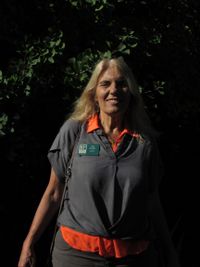Jelena Witch Hazel Information: How To Grow Jelena Witch Hazel


If you have Jelena witch hazel plants in your backyard, your winter landscape will blaze with their rich coppery-orange blossoms. And that sweet fragrance is delightful. Growing Jelena witch hazel brings an unusual plant into your garden. Read on for more Jelena witch hazel information, including tips on how to grow Jelena witch hazel.
Jelena Witch Hazel Information
Say goodbye to empty garden blues in winter. All you have to do to liven up the backyard is to start growing Jelena witch hazel shrubs (Hamamelis x intermedia 'Jelena') with their fabulous blossoms. The flowers on Jelena witch hazel plants are like nothing you’ve ever seen before. The dense clusters of flowers cover the shrub’s naked branches in winter. Each flower is comprised of four long, wavy, spidery petals. The ribbon-like petals are in fiery shades of orange and red. They have a very pleasant fragrance. Jelena is an upright witch hazel cultivar that grows slowly to some 12 feet (3.5 m.). It has ascending branches that spread fairly wide. Broad green leaves cover the plant all summer and turn orange-red in fall. Flowers appear in winter.
How to Grow Jelena Witch Hazel
If you want to know how to grow Jelena witch hazel, you’ll be happy to hear that it grows easily in average soil. However, that’s not to say it doesn’t have preferences. Witch hazel prefers a moist, organically rich soil that leans toward acidic. You should keep that soil consistently moist. It makes the plant happy and prevents summer leaf scorch. You can plant witch hazel Jelena in a full-sun location, but it also grows well in partial shade. However, the sunnier the site, the better flower display you can expect from the plant in winter. One of the most important parts of witch hazel ‘Jelena’ care is pruning. You will want to trim the shrub to control its size and clean up its shape. When is the best time to prune Jelena witch hazel plants? Prune them in spring after flowering. It’s also very important to dig out root suckers as they appear, especially those rising from below a graft union. Otherwise, the plant may spread much farther than you would like.
Sign up for the Gardening Know How newsletter today and receive a free copy of our e-book "How to Grow Delicious Tomatoes".

Teo Spengler is a master gardener and a docent at the San Francisco Botanical Garden, where she hosts public tours. She has studied horticulture and written about nature, trees, plants, and gardening for more than two decades, following a career as an attorney and legal writer. Her extended family includes some 30 houseplants and hundreds of outdoor plants, including 250 trees, which are her main passion. Spengler currently splits her life between San Francisco and the French Basque Country, though she was raised in Alaska, giving her experience of gardening in a range of climates.